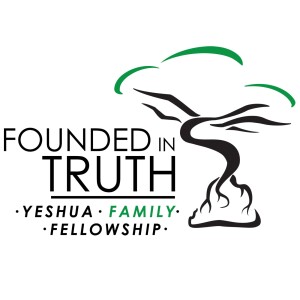
- Podcast Features
-
Monetization
-
Ads Marketplace
Join Ads Marketplace to earn through podcast sponsorships.
-
PodAds
Manage your ads with dynamic ad insertion capability.
-
Apple Podcasts Subscriptions Integration
Monetize with Apple Podcasts Subscriptions via Podbean.
-
Live Streaming
Earn rewards and recurring income from Fan Club membership.
-
Ads Marketplace
- Podbean App
-
Help and Support
-
Help Center
Get the answers and support you need.
-
Podbean Academy
Resources and guides to launch, grow, and monetize podcast.
-
Podbean Blog
Stay updated with the latest podcasting tips and trends.
-
What’s New
Check out our newest and recently released features!
-
Podcasting Smarter
Podcast interviews, best practices, and helpful tips.
-
Help Center
-
Popular Topics
-
How to Start a Podcast
The step-by-step guide to start your own podcast.
-
How to Start a Live Podcast
Create the best live podcast and engage your audience.
-
How to Monetize a Podcast
Tips on making the decision to monetize your podcast.
-
How to Promote Your Podcast
The best ways to get more eyes and ears on your podcast.
-
Podcast Advertising 101
Everything you need to know about podcast advertising.
-
Mobile Podcast Recording Guide
The ultimate guide to recording a podcast on your phone.
-
How to Use Group Recording
Steps to set up and use group recording in the Podbean app.
-
How to Start a Podcast
-
Podcasting
- Podcast Features
-
Monetization
-
Ads Marketplace
Join Ads Marketplace to earn through podcast sponsorships.
-
PodAds
Manage your ads with dynamic ad insertion capability.
-
Apple Podcasts Subscriptions Integration
Monetize with Apple Podcasts Subscriptions via Podbean.
-
Live Streaming
Earn rewards and recurring income from Fan Club membership.
-
Ads Marketplace
- Podbean App
- Advertisers
- Enterprise
- Pricing
-
Resources
-
Help and Support
-
Help Center
Get the answers and support you need.
-
Podbean Academy
Resources and guides to launch, grow, and monetize podcast.
-
Podbean Blog
Stay updated with the latest podcasting tips and trends.
-
What’s New
Check out our newest and recently released features!
-
Podcasting Smarter
Podcast interviews, best practices, and helpful tips.
-
Help Center
-
Popular Topics
-
How to Start a Podcast
The step-by-step guide to start your own podcast.
-
How to Start a Live Podcast
Create the best live podcast and engage your audience.
-
How to Monetize a Podcast
Tips on making the decision to monetize your podcast.
-
How to Promote Your Podcast
The best ways to get more eyes and ears on your podcast.
-
Podcast Advertising 101
Everything you need to know about podcast advertising.
-
Mobile Podcast Recording Guide
The ultimate guide to recording a podcast on your phone.
-
How to Use Group Recording
Steps to set up and use group recording in the Podbean app.
-
How to Start a Podcast
-
Help and Support
- Discover

Founded in Truth Fellowship - Bible Teachings and Sermons
Religion & Spirituality:Christianity

In this Bible teaching from Founded in Truth Fellowship, Matthew Vander Els explores the concept of the temple in relation to God's mission throughout history. The teaching emphasizes that God's desire has always been to have His reign, defined by His mercy, justice, forgiveness, love, and presence, felt and expanded throughout His creation. This mission, initially given to mankind in the Garden of Eden, was for humanity to be vessels through whom God ruled His creation. However, mankind rejected this vocation, leading to sin and separation from God.
Yeshua: The True Temple and the Beginning of New CreationTo address this separation, God sent Yeshua, the true image-bearer, king, and Son of God. Yeshua demonstrated what it looks like to allow God to reign through a human being by healing, forgiving, and ultimately sacrificing himself on the cross. Through His death and resurrection, Yeshua conquered sin and death, offering the possibility of victory to those who follow Him and submit themselves as vessels to God. This is the gospel, the core of Christian faith. In Yeshua, God's rule and presence returned to earth, birthing a new creation.
The Significance of the Physical TempleThe teaching then transitions to the idea of the temple. In the ancient world, temples symbolized a real connection between the divine and humanity, housing the spirit of a particular god so that people could commune with the divine. The temple was seen as the place where heaven met earth, where the divine intermingled with humanity. The speaker uses the analogy of a bathroom as a sacred space with specific protocols to illustrate the concept of a temple being reserved for sacred purposes. In the Old Testament, the temple in Jerusalem, built and rebuilt over centuries, was the central place for Israelite culture, community, fellowship, and worship. It was symbolic of Eden, the Garden, representing a model of God's good world where God and humanity could meet, and God's reign would be present. Unclean things and divisions from God were not meant to enter this sacred space. Even Solomon recognized that the physical temple could not contain God's fullness, suggesting its purpose was to be a centerpiece for Israel's vocation to spread God's presence to all nations.
Believers as the Temple of the Holy SpiritThe New Testament introduces a significant shift in understanding the temple. After Yeshua's resurrection, the assertion is made that believers themselves, both individually and as a fellowship (church), are the temple, the place where God's Spirit dwells. Paul's letters, particularly 1 Corinthians and Ephesians, emphasize this concept. In 1 Corinthians 3, Paul addresses divisions within the Corinthian church, where members were favoring certain teachers over others. Paul rebukes this behavior, stating, "**Do you not know that you are God's temple and that God's Spirit dwells in you? If anyone destroys God's temple, God will destroy him. For God's temple is holy, and you are that temple**." He uses a demonstration to illustrate how division within the fellowship destroys God's spiritual temple. Paul stresses that their allegiance should be to Yeshua alone, not to individual teachers or specific theological viewpoints that cause division.
Furthermore, in 1 Corinthians 6, Paul addresses issues of sexual immorality within the church, using the same imagery of believers as God's temple. He argues that since believers' bodies are members of Christ and temples of the Holy Spirit, engaging in sexual immorality defiles God's sacred space. He connects this defilement to other behaviors like greed, thievery, drunkenness, and abusiveness. Paul also addresses the issue of racism in the church in Ephesus, explaining that in Christ, all believers, regardless of ethnicity or background, are part of God's temple, built on the foundation of the apostles and prophets, with Christ Jesus as the cornerstone. He emphasizes that there is only one seed in Christ, making ethnic or DNA-based distinctions irrelevant in God's kingdom.
Yeshua as the Dwelling Place of GodThe teaching highlights John's Gospel, where John presents Yeshua as the new creation and the Word (Logos) who became flesh and **dwelt (skainoo) among us**, a Greek word signifying dwelling in a tent or tabernacle. This is the same word used in Revelation 21:3 to describe God's dwelling among His people. John emphasizes that Yeshua himself is the sacred space where God and humanity meet in harmony. When Yeshua cleansed the temple in John 2, He declared, "**Destroy this temple, and in three days I will raise it up**," referring to the temple of His body and His resurrection. Thus, the true temple, the place of perfect relationship with God, is found in Yeshua. After His resurrection, Yeshua sent the Holy Spirit to His followers, the same Spirit that resided in Him. By receiving the Holy Spirit through loyalty to Yeshua, believers become part of this temple, members of Christ's body.
Living as the Temple: Practical Applications- Recognize Your Identity: Understand that if you follow Yeshua and have His Spirit, you are part of God's temple, a sacred space.
- Maintain Unity: Avoid divisiveness and selfish agendas within the Christian community. Treat fellow believers as essential parts of the same temple.
- Live a Holy Life: Recognize that your body is a temple of the Holy Spirit and refrain from behaviors that defile this sacred space, such as sexual immorality, greed, and abuse.
- Embrace Inclusivity: Reject discrimination and prejudice based on ethnicity, background, or any other worldly distinction. In Christ, all believers are equal parts of God's temple.
- Focus on God's Mission: Participate in God's mission for His reign to increase and spread throughout the world, rather than seeking to create exclusive or judgmental groups.
- Seek Personal Transformation: Allow God to reveal and change the unclean areas in your life that hinder His presence in your sacred space.
- Engage in Community: Recognize the church as a sacred space where healing, reconciliation, forgiveness, mercy, and joy should be evident.
- Be a Visible Manifestation: Live in a way that reflects God's Spirit to the world, free from distractions like fear, anxiety, addictions, and selfish pursuits.
To find more Bible Teachings, click the link.
References- Genesis 1-2
- Genesis 3
- 1 Kings 6-8
- 1 Kings 9
- Isaiah 66
- Jeremiah 7
- John 1:14
- John 2:13-22
- Acts 2
- The Bible by Various Authors
Note: This article contains affiliate links.
More Episodes
 2016-05-23
2016-05-23
 1
1
 2016-05-17
2016-05-17
 1
1
 2016-05-06
2016-05-06
 2016-04-12
2016-04-12
 2016-03-22
2016-03-22
 2016-03-14
2016-03-14
 2016-02-25
2016-02-25
 1
1
 2016-02-15
2016-02-15
 2016-01-23
2016-01-23
 2015-12-30
2015-12-30
 2015-12-15
2015-12-15
 2015-11-19
2015-11-19
 2015-10-28
2015-10-28
 1
1
 2015-09-15
2015-09-15
 1
1
 2015-09-01
2015-09-01
 2015-08-25
2015-08-25
 2015-08-19
2015-08-19
Create your
podcast in
minutes
- Full-featured podcast site
- Unlimited storage and bandwidth
- Comprehensive podcast stats
- Distribute to Apple Podcasts, Spotify, and more
- Make money with your podcast
It is Free
- Privacy Policy
- Cookie Policy
- Terms of Use
- Consent Preferences
- Copyright © 2015-2025 Podbean.com



